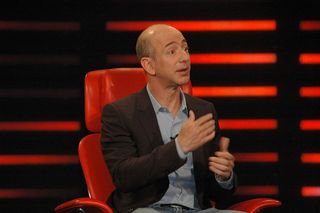Bezos denies Amazon is a soulless place to work
Amazon boss responds to NYT article claiming staff are mistreated

Amazon boss Jeff Bezos has hit back at a New York Times expos criticising the workplace culture of his company, saying it is not the Amazon he recognises.
The NYT reporters claim their article is based on interviews with 100 current and former employees, and highlights cases of people crying at their desks and bosses wilfully ignoring serious health problems of their charges.
But writing in an internal email to staff obtained by GeekWire, Bezos said: "The article doesn't describe the Amazon I know or the caring Amazonians I work with every day. But if you know of any stories like those reported, I want you to escalate to HR."
He also handed out his personal email for staff to notify him of any examples of behaviour like those cited by the NYT, saying "our tolerance for any such lack of empathy needs to be zero".
However, the NYT claimed Bezos himself was responsible for creating and maintaining Amazon's work culture through his so-called 'articles of faith' governing employee behaviour.
"You can work long, hard or smart, but at Amazon.com you can't choose two out of three," the publication quoted Bezos as saying in his 1997 letter to shareholders.
In reality, the NYT claimed, this has led to Amazon using data and psychological methods to track employee performance, with warehouse staff measured by electronic tools to see how many boxes they pack per hour.
Get the ITPro. daily newsletter
Receive our latest news, industry updates, featured resources and more. Sign up today to receive our FREE report on AI cyber crime & security - newly updated for 2024.
"The company is running a continual performance improvement algorithm on its staff," said Amy Michaels, a former Kindle marketer.
But Bezos's staff memo said no company with a working culture as described by the NYT could become as successful as Amazon.
"I don't think any company adopting the approach portrayed could survive, much less thrive, in today's highly competitive tech hiring market," wrote Bezos.
"The people we hire here are the best of the best. You are recruited every day by other world-class companies, and you can work anywhere you want."
Amazon recorded a profit of $92 million in its latest quarter, despite industry watchers expecting it to lose 14 cents a share, while net sales grew 20 per cent to $23 billion.
Picture courtesy of Dan Farber




